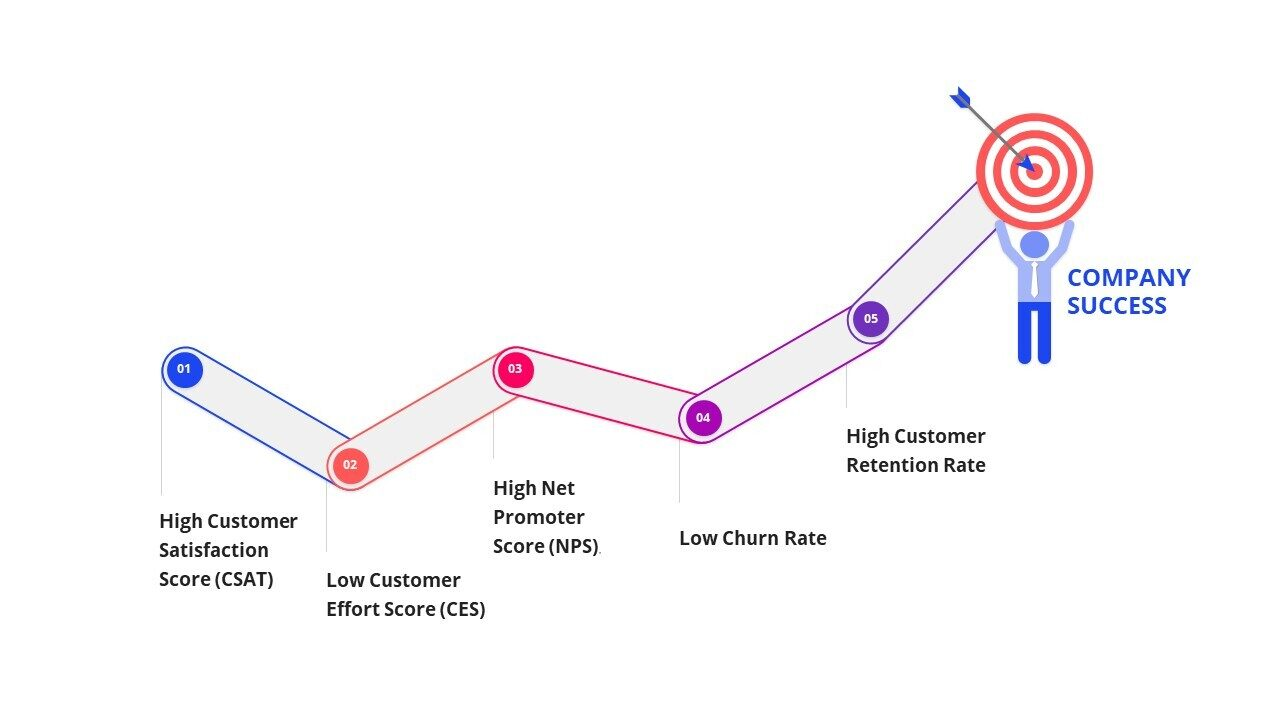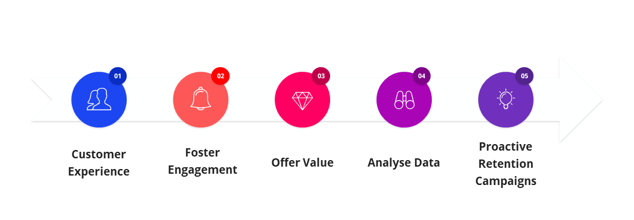Customer attrition is the rate at which customers stop doing business with a company over a certain period. It's a critical metric for businesses, as retaining existing customers is often more cost-effective than acquiring new ones. Understanding why customers leave and employing strategies to minimise attrition can significantly impact a company's bottom line and long-term success.
Causes of Customer Attrition
1. Poor Customer Experience
The frequency of unresolved issues are, naturally, a huge determinant on customer satisfaction. Customers expect their concerns to be addressed promptly and effectively. Unresolved issues, especially recurring ones, signal negligence and dissatisfaction. As is long waiting times, which can contribute significantly to client attrition. Excessive wait times, whether in queues, for responses, or in service delivery, frustrate customers and erode loyalty.
In general, inconsistency in service quality or delivery that falls short of expectations damages the customer-company relationship. It undermines trust and drives customers to seek better alternatives.
2. Lack of Engagement and Clear Communication
Maintaining a line of communication to your customer is important. When a company fails to engage customers through personalised interactions, relevant content, or proactive communication, customers feel alienated.
This contributes to having an adequate feedback loop. Customers appreciate when their feedback is acknowledged and acted upon. Ignoring or dismissing their input makes them feel undervalued. Similarly clear communication regarding product/service features, terms, and policies is crucial. Misunderstandings breed dissatisfaction and erode trust. Customers appreciate transparency. Hidden fees, unclear terms, or undisclosed changes can lead to frustration and prompt customers to seek more transparent alternatives.
3. Competitive Offerings
Price is obviously a significant factor for many customers. If a competitor offers a similar product or service at a more competitive rate, customers might switch. Because of this, lowering costs in your business is naturally always a good strategy to take, as you can pass on the savings to your customer.
But price shouldn’t always supersede the importance of innovation. If a rival introduces better features or services that cater to customer needs more effectively, existing customers may be enticed to switch. Bespoke software that’s been crafted for your business is a good way to capture this edge over your competitors.
4. Changing Needs
Customer trends and preferences may evolve and shift particularly within globalised markets where a greater number of factors play a role. What was once valuable might become outdated. Companies need to continuously adapt to stay relevant.
Moreover, as markets evolve, customer needs undergo transformative shifts driven by technological advancements, societal changes, or even unforeseen events. Consider the growing preference for sustainable products in recent years—a shift sparked by heightened environmental awareness. Companies that swiftly adapted their offerings to include eco-friendly alternatives not only met this evolving demand but also gained a competitive edge in appealing to conscientious consumers, illustrating the importance of staying attuned to changing societal values and needs.
5. Outdated Technology
Outdated technology significantly fuels customer attrition by hindering a company's ability to meet evolving customer expectations. It leads to slower processes, errors, and a subpar user experience, alienating customers accustomed to seamless services.
Moreover, outdated tech limits innovation and customisation, making it challenging to adapt to changing needs. For example, an obsolete e-commerce platform struggles to integrate new features or personalise experiences, prompting tech-savvy customers to switch to competitors providing advanced and adaptable services. Ultimately, failing to keep up with technological advancements directly contributes to customer loss by failing to meet modern consumer demands.
By addressing these specific aspects within each cause of customer attrition, companies can better identify areas for improvement and develop tailored strategies to mitigate client attrition. Understanding the nuanced reasons behind customer attrition is key to implementing effective retention initiatives and fostering long-term customer relationships.
Measuring your customer experience, with customer attrition being a key part, can be a helpful place to start when trying to improve your CX. The image below lists the other key KPIs to measure, and you can check out this article to read more.

Strategies to Reduce Customer Attrition
1. Enhance Customer Experience
Tailoring experiences based on customer preferences, purchase history, and behaviour can create a stronger emotional connection. Personalised recommendations and communication make customers feel valued. Providing consistent and efficient support across various channels (phone, email, chat, social media) ensures customers can reach out in their preferred way, enhancing accessibility and satisfaction.
Anticipating potential issues and addressing them before they become problems showcases proactive customer service. Timely resolution prevents escalation and demonstrates commitment to customer satisfaction. Building emotional connections through storytelling, brand values, and shared experiences fosters long-term loyalty beyond transactional interactions.
2. Foster Engagement
Creating a community platform or forum where customers can interact with each other and the brand fosters a sense of belonging and strengthens loyalty. Actively incorporating customer feedback into product/service improvements demonstrates responsiveness and shows customers their opinions matter.
Offering exclusive rewards, early access to products, or special events to loyal customers incentivises continued engagement and purchases.
3. Offer Value
Investing in research and development to stay ahead of market trends and consistently offering new and improved products/services keeps customers excited and engaged. Providing educational content or resources related to your products/services helps customers maximise their use and derive more value, positioning your brand as a trusted advisor.
Allowing customers to customise their purchases or services according to their specific needs or preferences adds intrinsic value and enhances their overall experience.
4. Analyse Data
Leveraging advanced analytics to predict customer behaviour enables proactive decision-making, allowing businesses to intervene before customers leave. Segmenting customers based on behaviour, demographics, or purchase patterns allows for targeted marketing and personalised engagement strategies, optimising retention efforts.
Understanding the lifetime value of customers helps prioritise retention efforts by focusing resources on retaining high-value customers.
5. Proactive Retention Campaigns
Implementing a scoring system to assess customer health helps identify at-risk customers and enables targeted interventions. Crafting personalised re-engagement campaigns based on the reasons for disengagement or churn increases the chances of successfully bringing customers back.
Implementing systems to continuously monitor customer engagement metrics allows for real-time identification of at-risk customers and timely intervention.
By incorporating these detailed aspects into each retention strategy, businesses can create a comprehensive approach to improving customer retention, ensuring a more profound impact on customer satisfaction and loyalty. Looking for help? Discover how our 30 years of experience in contact centre technology can enable you to succeed.

Reducing customer attrition is paramount for businesses aiming for sustainable growth. By recognising the causes, calculating the attrition rate, and implementing strategic measures, companies can proactively reduce customer attrition, enhance customer satisfaction, and foster long-term relationships, ultimately leading to increased profitability and success.
%20(1).gif?width=229&height=128&name=March%20Assets%20(500%20x%20280%20px)%20(1).gif)
%20(2).gif?width=227&height=127&name=March%20Assets%20(500%20x%20280%20px)%20(2).gif)
